Detailed introduction of Sofia University:
Introduction and Overview
Sofia University, the full name of Sofia St. Clement Ohrid University, is the earliest higher education institution in Bulgaria and one of the most important scientific and cultural centers in Bulgaria. It is located in the scenic area in the east of Sofia, close to Lenin Boulevard, the widest and longest street in Sofia.
History
In 1880, the Bulgarian Ministry of Education proposed to establish the country's first higher education institution. In 1887, the Minister of Education opened a pedagogy course in Sofia No. 1 Boys' High School. Classes began on October 1, 1888. On December 8 of the same year, the Congress converted it into a high school.
In 1889, Alexander Teodorov-Baran was elected as the first president. At that time, only the Department of History and Linguistics was envisioned. In the 1889/1890 academic year, the Department of Physics and Mathematics was opened, and the School of Law was established in 1892.
From 1918 to 1923, four new colleges were opened: Medical College, Agricultural and Forestry College, Theological College, and Veterinary College.
After the victory of the socialist revolution on September 9, 1944, the University of Somalia carried out a series of reforms, such as restoring the student status of college students who were convicted of political prisoners and participated in the guerrillas.
From 1947 to 1952, the parliament passed a series of bills to separate the colleges and institutes in the university. Some of them became newly established higher academic institutions, and some were incorporated into the Bulgarian Academy of Sciences. In recent years, some colleges and departments have been re-incorporated into the university framework.
Establishment time
October 1, 1888.
School strength
Faculty: It has 1,700 academic staff, including many experts and scholars with outstanding achievements in their respective fields.
Scientific research results: Among the invention awards registered by the state, Somalia has won the most awards. In addition to traditional basic scientific research, a large number of applied research projects have been carried out in recent years, such as laser technology and processes, purified substances and ultra-pure substances.
International Cooperation: The School of Economics and Business Administration became a full member of the European Foundation for Management Development (EFMD) in June 2024, and actively carries out international exchanges and cooperation.
Nature of the institution
Public research university.
Educational philosophy
Focusing on the combination of academic research and talent training, it is committed to providing students with high-quality education and extensive academic development opportunities, cultivating students' innovative ability and social responsibility, and promoting the development of Bulgaria and the international community.
Key laboratories and disciplines
Key laboratories: There are no specific key laboratories that are particularly publicly highlighted, but each college has corresponding scientific research experimental facilities and research centers, such as the Department of Pharmacy and Applied Organic Chemistry of the School of Chemistry and Pharmacy, which has its own scientific research base.
Key disciplines: It has a deep academic tradition and outstanding research results in the fields of humanities such as history, linguistics, and philosophy; it also has strong scientific research strength in the fields of natural sciences such as physics, chemistry, and biology; the medical profession is in a leading position in Bulgaria; the economics and business administration majors have developed rapidly in recent years and have been recognized internationally.
Faculty
There are currently 16 colleges and 3 independent departments, covering multiple disciplines such as history, linguistics, philosophy, law, medicine, mathematics and information, physics, chemistry, biology, etc., as well as the School of Slavic Languages, the School of Classical and Modern Languages, the School of Journalism and Mass Communication, the School of Education, the School of Educational Research and the School of Arts.
Ranking
Ranked 601-650 in the world in the 2021 QS World University Rankings, 44th in the QS Emerging Europe and Central Asia Rankings, and first in Bulgaria.
Expenses
Tuition fees vary depending on the major and student nationality. The tuition fees for Bulgarian and international students are different. Usually, the annual tuition fees for undergraduate students are around 2,000-5,000 euros, and the tuition fees for master's and doctoral students are relatively higher.
Campus environment
Architectural features: The main campus building is a group of interconnected buildings in a slightly pentagonal shape, with the university library in the middle. The main building is magnificent. There is a bronze statue on each side of the building, which is the Georgiev brothers who made great contributions to the establishment and development of Sofia University.
Surrounding environment: To the north is the Kirill and Methodius National Library, to the south is the lush Freedom Park, to the west is the Bulgarian National Assembly Building across a garden, and to the west is the Bulgarian Academy of Sciences. A few hundred meters northwest is the largest Alexander Nevsky Church in the Balkan Peninsula, and across the street from Sofia University is the Chinese Embassy.
Academic atmosphere: The campus is shaded by trees and has a strong learning atmosphere. It has a rich multidisciplinary library with a collection of more than 2.51 million books, more than 20,000 new library units each year, and more than 30,000 readers use its services.
-
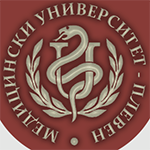
Medical University-Pleven
-
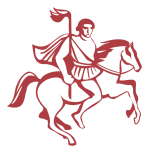
Trakia University
-

Burgas Prof. Assen Zlatarov University
-

Varna University of Management
-
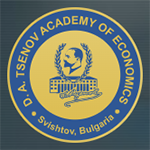
D. A. Tsenov Academy of Economics
-

Technical University - Sofia
-
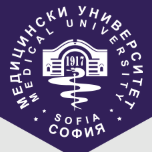
Medical University of Sofia
-

Plovdiv University
-
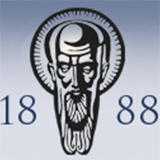
Sofia University
-
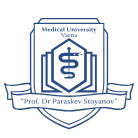
Medical University-Varna
-

Mesoamerican University
-

Istmo University
-

Mariano Galvez University of Guatemala
-

Regional University of Guatemala
-

Galileo University
-

Francisco Marroquín University
-

Rafael Landívar University
-

University of the Valley of Guatemala
-

University of San Carlos of Guatemala
-

Technological Institute of Tlaxcala Plateau
-

Golfo University
-

Technological University of South Sonora
-

Technological University of Huejotzingo
-

Tizimín Institute of Technology
-

Chilpancingo Institute of Technology
